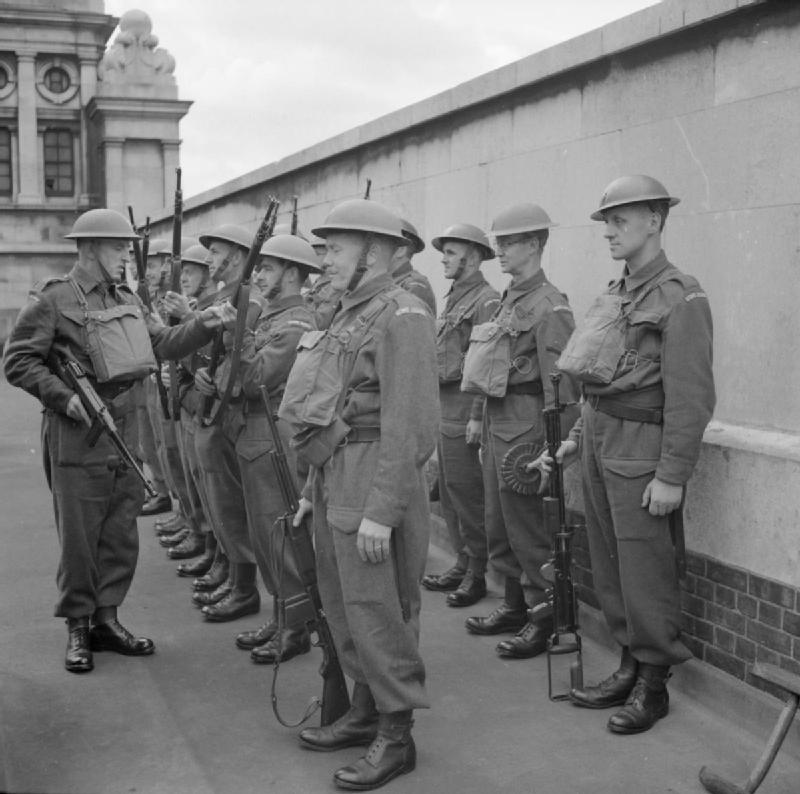A commercial partner is being sought to support the archivist in creating electronic copies and then publishing online four million Home Guards service records held by the Ministry of Defence
The National Archives is planning to digitise and publish online the service records of millions of men who served during the second world war in the citizen militia popularly known as ‘Dad’s Army’.
Created in 1940, the Home Guard (pictured above) was a domestic voluntary force comprised of millions of men who were ineligible for front-line military service. This included those who fell outside the age eligibility window of 18 to 41, as well as many men whose job was on the list of reserved occupations, which feature professions such as doctors, teachers, engineers and many more.
The service prepared to combat a potential invasion, and performed duties including bomb disposal and patrols of waterways, as well as operating anti-aircraft guns and other weaponry that formed the UK’s coastal defences.
The Home Guard is best known to many from its portrayal in the sitcom Dad’s Army – the title of which refers to the its nickname.
The Ministry of Defence currently holds the records of the four million volunteers who served in the Home Guard during WWII, as well as during the years of 1952 to 1957, when the force was re-established against a backdrop of growing Cold War tensions.
As part of a “multi-year transfer” programme encompassing 14 million service records in total, the Home Guard files are being moved from the MoD to The National Archives (TNA).
To enable public access to these records, the archive is seeking to appoint a partner that will support the process of digitising the files and publishing them online.
Related content
- National Archives offers £145k salary for CEO to deliver ‘near-contemporary digital records at scale’
- National Archives head: ‘Organisational culture and cohesion is vital in the digital age’
- National Archives plans digital service for officials to access sensitive records
The engagement will follow the organisation’s long-standing model of working with commercial entities – primarily genealogy websites – to create electronic versions of historical records at no cost to the taxpayer. In return for providing these digitisation services, such providers are then free to use the files on a commercial licence. TNA estimates that its chosen commercial partner for this project could use the data to ultimately generate up to £1m in revenue.
Companies interested in helping to digitise the Home Guard records have until midday on 5 April to express their interest in doing so. Shortlisted suppliers will then be asked to submit a formal tender, with the announcement of the winning bidder expected in late July.
“The project will be to digitise, transcribe and publish online the four million individual Home Guard service records previously held by the MoD,” the archives said, in a procurement documents]. “The contract award will include a commercial licence to publish the images online – and associated transcription data produced by the project – and to undertake all the required processes to complete this, including such activities as digital image capture and transcription of data, to allow for meaningful searches of the records’ online publication, for which TNA will expect a commercial return.”
The document added: “These records are the service records of individuals serving in the Home Guard, predominantly during the Second World War, with a small percentage (2.3%) covering the 1950s creation of a peacetime Home Guards. The primary document of focus is Army Form W. 3066, Form of Enrolment in the Home Guard… [which] contains personal information including, name, address, DOB and service information such as length of service and discharge details. This collection also contains a variety of other forms, handwritten letters, loose documents, which are optional for digitisation for the purposes of this tender. Medical records are excluded from this tender.”




